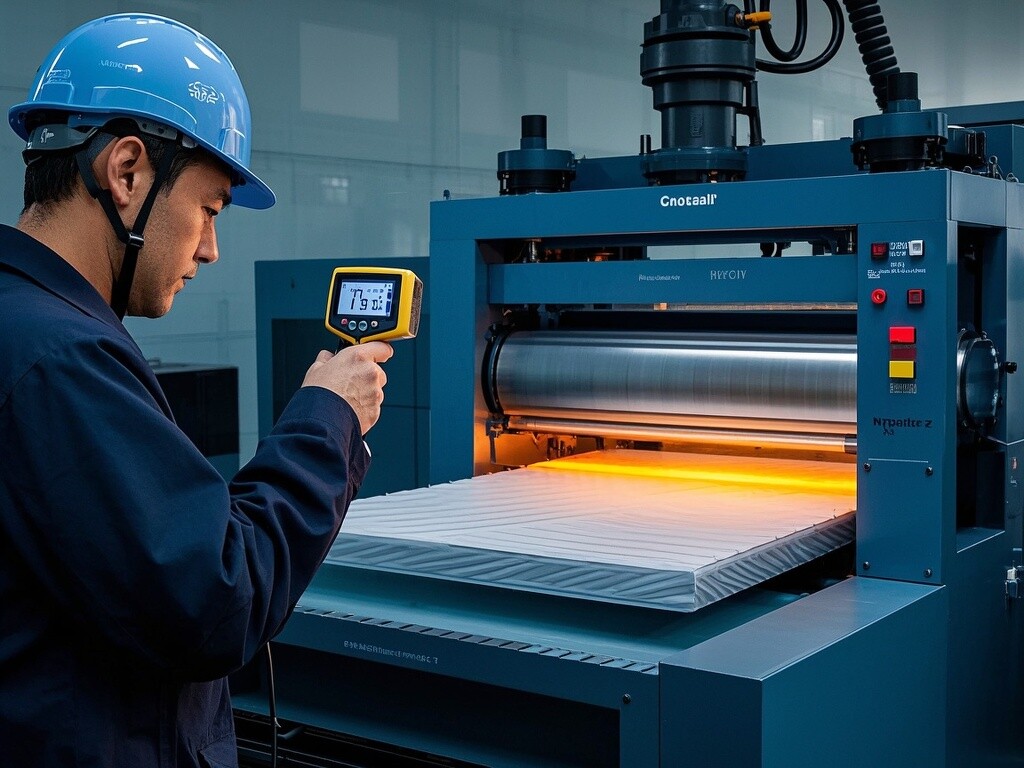News

Expert Tips for Maintaining Your PP Corrugated Sheet Equipment
Maintaining your PP corrugated sheet equipment is crucial for maximizing production efficiency and equipment lifespan. Whether you operate PP hollow sheet machines, boxboard equipment, or extrusion lines for sheets/flat films, proper maintenance ensures consistent quality output. This guide provides expert tips for operators and technical staff working with PP corrugated systems, PVC stone-plastic flooring equipment, and PVC/wood-plastic foam board production lines. Discover best practices to optimize performance and reduce downtime in your plastic processing operations.
1. Daily Maintenance Protocols for PP Hollow Sheet Machines
For operators handling PP hollow sheet related equipment, establishing a rigorous daily maintenance routine is non-negotiable. Begin with thorough cleaning of all rollers and guides using isopropyl alcohol to prevent material buildup that can compromise sheet thickness consistency. Pay special attention to the calibration of heating zones – temperature fluctuations exceeding ±2°C in PP processing can lead to warping or delamination. Lubricate all chain drives and bearings according to the manufacturer's specifications, typically every 80-100 operating hours. Document vibration levels on main drive motors; increases beyond 0.5 in/sec often indicate impending bearing failure. Implement a color-coding system for maintenance tools to prevent cross-contamination when working with different polymer types. These protocols directly impact the dimensional stability of your hollow sheets and prevent costly production halts.
2. Troubleshooting Common Issues in Boxboard Equipment
Boxboard equipment operators frequently encounter three critical challenges that proper maintenance can mitigate. First, inconsistent edge trimming often stems from dull cutting blades – replace them after every 15,000 linear meters of production or when roughness exceeds Ra 0.8 μm. Second, uneven surface gloss typically indicates worn polishing rollers requiring resurfacing or replacement. Third, sheet curling usually results from improper cooling zone settings; maintain a 3-5°C gradient between consecutive cooling stages for PP materials. Create a troubleshooting checklist that includes torque verification on all clamping units (should maintain 90-110 Nm for most boxboard applications) and alignment checks on conveyor systems (maximum allowable deviation: 0.1mm/m). Implementing predictive maintenance through vibration analysis and thermal imaging can reduce unplanned downtime by up to 40% in boxboard production lines.
3. Optimizing Extrusion Lines for Sheets/Flat Films
Extrusion lines for sheets and flat films demand particular attention to screw and barrel maintenance. Conduct a screw pull inspection quarterly, measuring flight wear against original specifications – replacement becomes necessary when clearance exceeds 0.2% of barrel diameter. For PVC stone-plastic flooring equipment, implement strict moisture control in raw materials (maintain below 0.02% moisture content) to prevent degradation in the barrel. Calibrate thickness gauges bi-weekly using certified reference standards, as even 0.05mm variations can significantly impact material consumption rates. When processing wood-plastic composites in PVC/wood-plastic foam board lines, increase frequency of screen changer maintenance to every 50-60 hours due to increased contamination risk. Document melt pressure trends – sudden increases often signal filter clogging or screw wear. These measures ensure consistent output quality while extending critical component lifespan by 30-50%.
4. Advanced Maintenance Strategies for Production Lines
Transitioning from reactive to predictive maintenance transforms equipment reliability in plastic processing. Implement infrared thermography scans monthly to identify hot spots in electrical panels and motor windings before failures occur. For PVC stone-plastic flooring equipment, establish a database tracking wear patterns on embossing rollers – most require resurfacing after 8-10 million linear feet of production. Utilize ultrasonic thickness testing on heat exchanger tubes annually to prevent costly coolant leaks. In PVC/wood-plastic foam board lines, monitor screw motor current draw – increases beyond 10% of baseline indicate developing issues. Consider retrofitting older extrusion lines with IoT-enabled vibration sensors that provide real-time alerts on developing mechanical issues. These advanced techniques typically yield ROI within 12-18 months through reduced downtime and extended capital equipment life.
5. Industry Standards and Certification Compliance
Adherence to international standards ensures both equipment performance and product quality. For PP corrugated sheet equipment, ISO 9001 certification demonstrates systematic quality management, while ISO 14001 addresses environmental considerations crucial for sustainable operations. CE marking remains mandatory for European market access, requiring rigorous safety documentation. In PVC stone-plastic flooring production, compliance with ASTM F1700 guarantees flooring performance characteristics. When maintaining PVC/wood-plastic foam board lines, familiarity with DIN EN 15534 ensures composite material standards are met. Document all maintenance activities according to ISO 55000 asset management standards, creating auditable records that support warranty claims and equipment valuations. These certifications not only ensure operational excellence but also enhance marketability of your plastic products in regulated industries.
6. Why Choose Our Maintenance Solutions?
With decades of specialized experience in plastic processing equipment maintenance, we offer unparalleled expertise across PP hollow sheet machines, boxboard equipment, and complete extrusion lines. Our certified technicians receive continuous training on the latest predictive maintenance technologies and OEM-specific protocols. We maintain an extensive inventory of genuine replacement parts for all major brands of PVC stone-plastic flooring equipment and PVC/wood-plastic foam board production lines. Our maintenance programs have demonstrated average increases of 22% in equipment uptime and 18% reduction in energy consumption across client operations. Contact our technical team today for a customized maintenance plan that addresses your specific production challenges and maximizes your return on capital investment.
Navigation
- Why PP Box Sheet Production Lines Are Revolutionizing Packaging?
- How to Choose the Best PP Corrugated Sheet Equipment for Your Needs?
- Top 5 Must-Know Features of PVC Stone Plastic Flooring Machines
- The Ultimate Guide to PVC/WPC Foam Board Extrusion Lines
- Expert Tips for Maintaining Your PP Corrugated Sheet Equipment
- How PVC Stone Plastic Flooring Machines Can Boost Your Productivity
Send Us A Message
Send Your Inquiry
We welcome your cooperation and we will develop with you.
